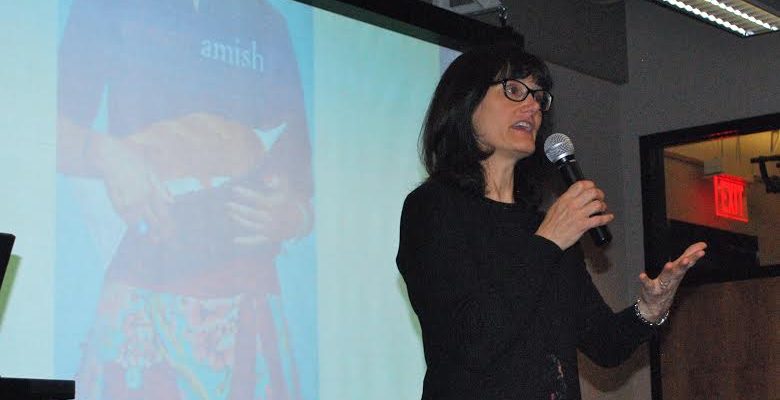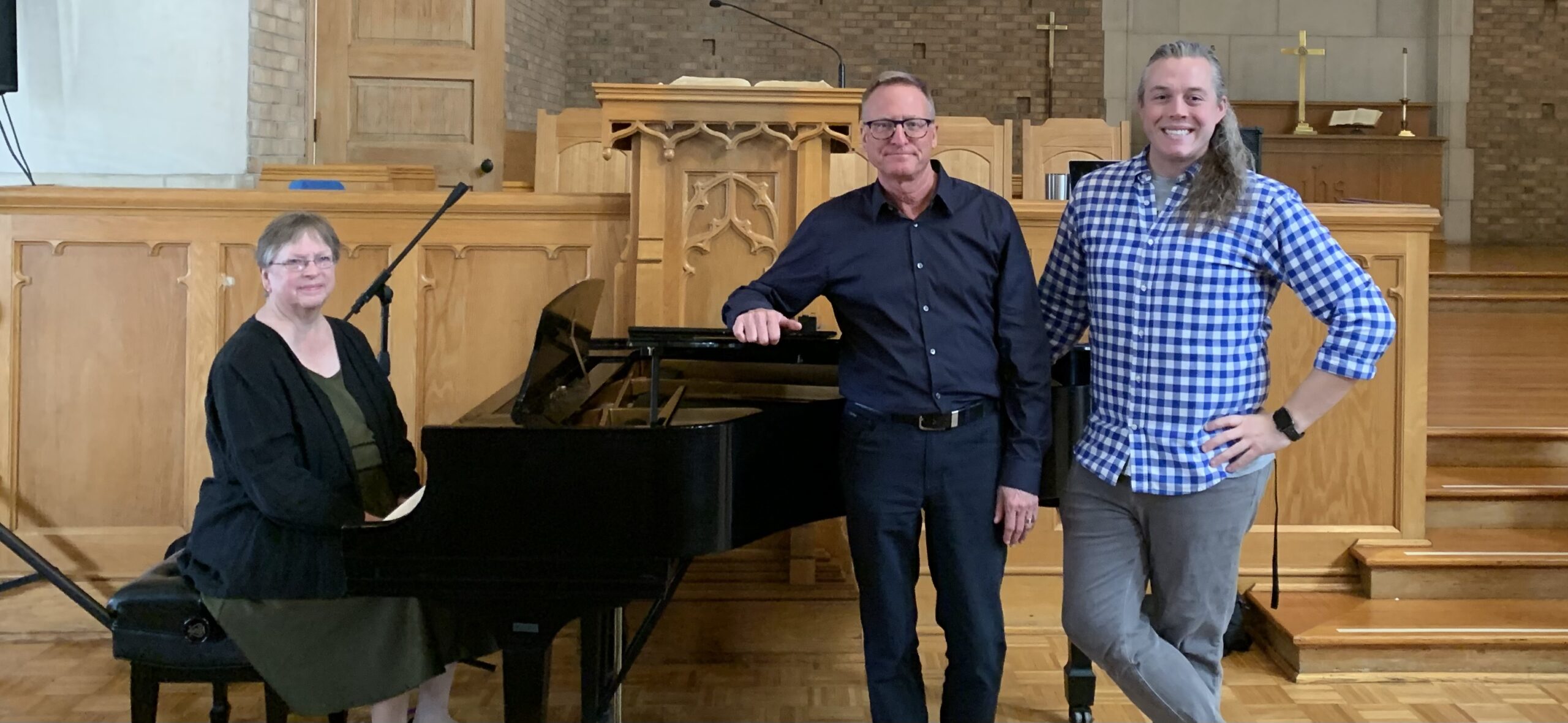
On Monday, February 10, Catawba College was proud to welcome Christian environmentalist, author, and educator, Nancy Sleeth to the Lilly Center for her workshop called “A Simple Plan That Simply Works,” where she discussed how her views on religion and the environment influenced her to downsize or “simplify” as she refers, her life from lavish to low maintenance.
As author of two books, Go Green, Save Green: A Simple Guide To Saving God’s Green Earth and Almost Amish: A Woman’s Journey To A Slower, Simpler, More Sustainable Lifestyle, Sleeth understands the ins and outs to becoming more environmentally conscious while improving one’s personal life. The purpose of her writings and lectures is to make the audience and the readers ask themselves why they hold on to belongings they no longer need or use them and how our satisfaction with our work, relationships, and ourselves impacts our health and the size of our ecological footprint. Through her journey, Sleeth has renewed her relationship with her family, her faith, and her environment. In 2012 she was even hailed one of the “50 Women to Watch” by Christianity Today.
The Georgetown University graduate stood with a look of sheer joy as she was introduced by the Director for the Center For The Environment, Dr. John Wear. She began her speech by discussing her Jewish upbringing and how her non-Jewish carpenter husband, Matthew Sleeth became Jewish not through a spiritual rebirth but the next best thing- becoming a doctor. The couple would later have two children, renounce their religion because of its stringent customs, and would soon find themselves in need of moral guidance after major tragedy. Her brother, at the age of 32, would drown before her children’s eyes and would lead Sleeth to fall into a period of depression and increased anxiety due to her husband being targeted by a mentally ill patient who would later murder his own mother.
Personal trauma was not the only problem. Matthew noticed that patients were becoming increasingly ill and a particular hardship for him was when he had to tell a man who had just lost his wife that he would be raising their children alone. “He cried with him,” she said discussing the level of compassion that her husband had for the people he helped but even the satisfaction of helping others could not overshadow the sadness they both shared. That was the moment when the couple realized that it was, in her husband’s words, “time we don’t run for a cure but look for a cause.”
On a family trip to Florida, Sleeth and her husband were sitting together late one night and she asked Matthew what he felt the biggest problem facing the world today was and his response changed her. He said the word was dying. After that, the former secular humanist couple began looking for answers, not from a scientific study or experiment but from religious books such as the Quran and the Book of Mormon. Their prayers were soon heard when, during a routine doctor’s visit, Matthew saw something that even in their wealth they had never obtained- a bible. Matthew took the book off the table and never managed to put it down, or bring it back, and the Sleeth family would begin their journey to living a more faithful and eco-friendly lifestyle.
As with many things however, downsizing not once but three times was not easy for Sleeth or her family, who would lose possessions, technology, and the security of a doctor’s salary in favor of a life of helping the planet and doing right by their faith. The Sleeths began celebrating the Sabbath or a weekly day of rest where they would escape from the temptations of modern technology in favor of enjoying God’s green earth. The day would become so special for the family that their children would get their work done ahead of time so that they could enjoy it without interruption.
With their new-found faith, they began to preach the word of God and incorporated an environmentally conscious message behind their beliefs which was met with mixed feelings from their Southern Baptist who told them they had the philosophies of tree huggers. Sleeth laughs mentioning this, and you cannot help but think that the ideals that many have criticized would have such a positive impact on the planet through her and Mathew’s publications encouraging people to be happy and give up their material possessions to their non-profit organization, Blessed Earth, and the numerous speaking engagements that have brought them the notoriety and stability they thought had been lost through simplifying their lifestyle.
With the publication of Almost Amish, Sleeth writes about her fascination with the Amish community and how their less abundant lifestyle is possibly more fruitful than that of modern day society. Believing her views to be unconventional and misaligned with Christianity, a man in the congregation stood up and shouted, “what are ya, Amish or something?” and with that, her book Almost Amish came into fruition. She backs up her statements about the Amish people with a little research about the mortality of the Old Order Amish stating they have 40-50% less of a cancer risk than that of non-Amish people, they are 6-7 times less obese than the rest of the country, and their suicide rates are substantially lower than than ours.
So maybe a simpler lifestyle is not the worst thing in the world? Sleeth leaves us with a final thought that simplicity is not about how organized you are but, what you give to others and your God. Additionally, words inspired by her commencement speaker, Mother Teresa, “It’s important to serve others.”

